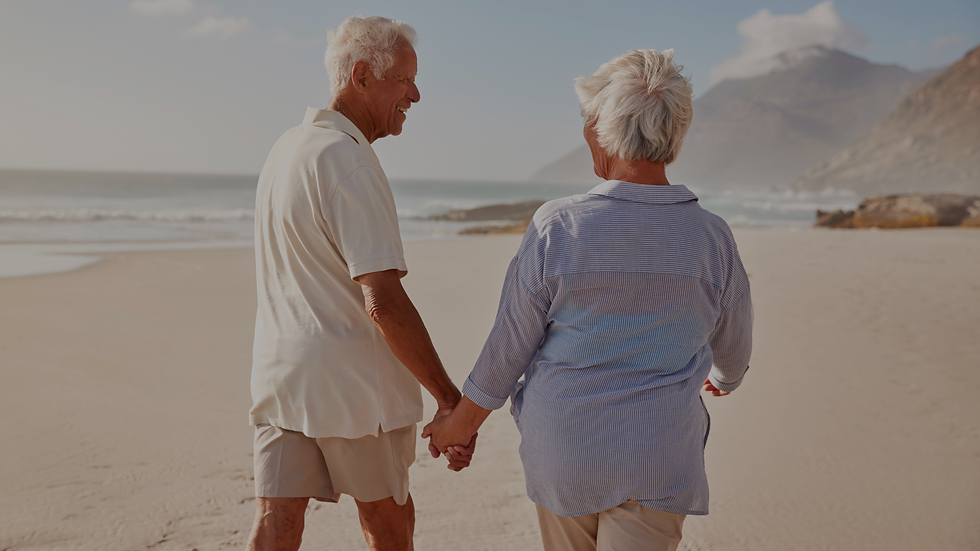The Importance of Mobility in Elderly Care
- Audelacare™️

- Feb 5, 2024
- 3 min read
Updated: Feb 13, 2024

Mobility is something that too many of us take for granted. We seldom genuinely appreciate how crucial being able to get around easily really is, until we or someone we know begins to experience difficulties in this regard.
While injuries or accidents can affect anyone's mobility, the elderly face a heightened risk of diminished mobility due to factors such as affected eyesight and hearing, osteoporosis, arthritis, and sub-optimal heart health. Given the prevalence of such concerns among the elderly, caregivers should be prepared to prioritise fall prevention for seniors who are struggling with mobility issues.
Let’s now talk about some of the reasons why mobility is crucial where elderly care is concerned.
Personal Independence and Autonomy
Elderly people with enhanced mobility can complete tasks independently and this heightened autonomy often results in empowerment, influencing behaviour positively. Consequently, improved mobility contributes to the overall well-being of seniors across various aspects of their lives.
This increased level of autonomy not only benefits our elderly loved ones; it does likewise for the caregiver. Caregivers tending to mobile elderly individuals can redirect their focus to more pressing concerns, free from the worries of sudden falls and potential injuries. They can also support increased mobility by purchasing devices that aid movement and promote fall prevention for seniors. Additionally, the assistance of a physical therapist can also be greatly helpful through tailored exercise plans that prioritise strength, flexibility, and balance, helping seniors regain confidence in their movements.

Social Engagement
Restricted mobility often poses logistical challenges for the elderly, making venturing out for social interaction more difficult due to certain physical limitations. Therefore, greater mobility in the elderly sets off a positive “domino effect”, offering them greater access to social engagement opportunities.
Social engagement holds immense importance for the elderly because it improves their self-image and instils a sense of belonging. This contributes to a more fulfilling experience as they live out their twilight years, underscoring the critical role of social engagement in elderly care. Caregivers can do their part by making arrangements for their elderly charges to regularly meet and interact with people in their own circles. That being said, heightened mobility levels will significantly ease the coordination of such meaningful engagements.
Physical and Cognitive Health
An elderly person’s physical and cognitive health are closely tied to mobility. Seniors who are more mobile are less likely to fall, preventing them from sustaining injuries that could sometimes be life-threatening. In addition, seniors with enhanced mobility reap physical health benefits through increased exercise, lowering their risk of certain cancers as well as cardiovascular disease.
Some studies have even proven the links between cognitive health in ageing people and mobility. Elderly people with increased mobility have more white matter tract integrity and hippocampal volume in their brains. These neural characteristics lead to the prevention of age-related cognitive decline, dementia, and memory loss.

Enhanced Quality of Life
The term “quality of life” refers to how people perceive and react to various health-related and non-health related aspects of their lives. A direct correlation exists between the mobility of elderly people and the overall quality of their day-to-day lives. A study conducted in 2017 showed that the longer an elderly person was able to walk, the better that person’s quality of life was. Even a 100-metre increase in walking distance capability brings about a quality of life improvement of more than 3%.
Caregivers must recognise this and adjust their approach to support seniors effectively. For instance, encouraging the people they care for to engage in walking as much as possible can be helpful. Caregivers can also do more by providing support through walking sticks and other mobility-enhancing tools. Furthermore, maintaining a clutter-free home environment is essential to further facilitate the elderly person’s ability to walk freely and safely.
At Audelacare, we’re committed to assisting the seniors in your life with their mobility. Our walking and hiking stick provides them with the necessary stability and support to make mobility a great deal simpler. In addition, the stick’s ergonomic design makes it easier to grip and comfortable to hold.
We also supply adult disposable briefs and diaper pants to customers across Singapore to not just address incontinence concerns, but also allow seniors to maintain their dignity and independence.
We’ll even let new customers try out free adult diaper samples - just click on the “FREE SAMPLES” tab, choose what you need, and fill out the form.
Drop us an email at sales@elitecare.sg or call us at +6531290488 to give someone the gift of mobility today.




Comments